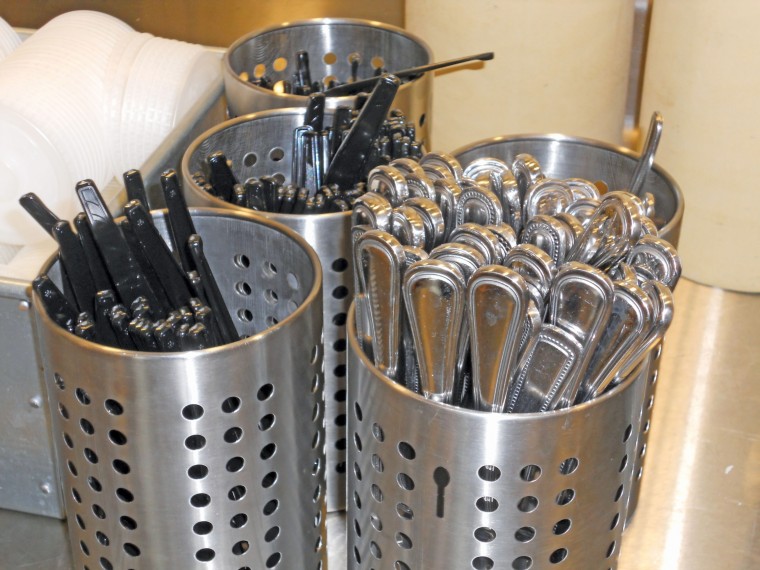Composting not present on campus
St. Edward’s University senior Liana Cox thought she was doing the right thing when she tossed her used plastic spoon into the black void of the recycling bin at the cafeteria.
“That’s what those bins are for — recycling this plastic…right?” she asked.
In theory, her words aren’t wrong. However, common recycling bins accept only oil-based plastics, but the plastic that Cox threw in the bin was corn-based.
The second Cox’s spoon entered the recycling bin, it became someone else’s problem. But composting at St. Edward’s is apparently no one’s responsibility.
Neither Bon Appétit nor the St. Edward’s Physical Plant claim responsibility for composting cafeteria waste.
Composting, in the traditional sense, means throwing organic material, such as food scraps and grass clippings, into a bin to let it decay naturally. The composting that is used to break down bioplastic, a more environmentally friendly plastic than corn-based plastic, is essentially the same, just more controlled.
In order for bioplastics to be recycled, they must be composted correctly at a composting center.
“For whatever reason, these businesses don’t have composting, and so people are throwing the corn-based plastics in with the oil-based ones,” said Jessica King, the sustainability administrator for the Solid Waste Services of Austin. “They can’t be recycled together.”
Once bioplastics enter the recycling stream, the effects are harmful. The organic material of the bioplastic cannot fuse with that of typical oil-based plastics like milk cartons and yogurt cups.
Bon Appétit, the foodprovider for St. Edward’s, has a waste commitment goal “to reduce the effects of the production and disposal of the containers used in our locations,” according to their website.
Many commercial businesses have been making the switch to bioplastic, which is made from plant materials such as corn, sugarcane and potatoes. Bioplastics can be broken down by composting and are, therefore, considered environmentally friendly.
Bon Appétit, however, is not accountable for where the waste from the St. Edward’s cafeteria goes.
“The university is in charge of this [composting] program,” Bon Appétit’s General Manager Michael Smith said. “We bag up what we can and give it to them.”
But the campus has not done anything to separate compostable plastics from non-compostable ones. Gabe Orneleas, the campus center director, sums up the university’s current waste removal.
“Any disposables go to the regular trash bins, and then the Physical Plant deals with the waste,” he said.
When asked about composting at St. Edward’s, Mike Peterson, the director of the university’s Physical Plant, said that it was up to Bon Appétit to deal with sustainability efforts.
“We take out whatever waste the campus makes,” Peterson said. “We have a few different places we take the waste, but, as far as composting, we have talked about it a bit but nothing has been done.”
As long as the campus does not provide a bin for composting, students will continue to throw compostables in with the trash or the recycling.







